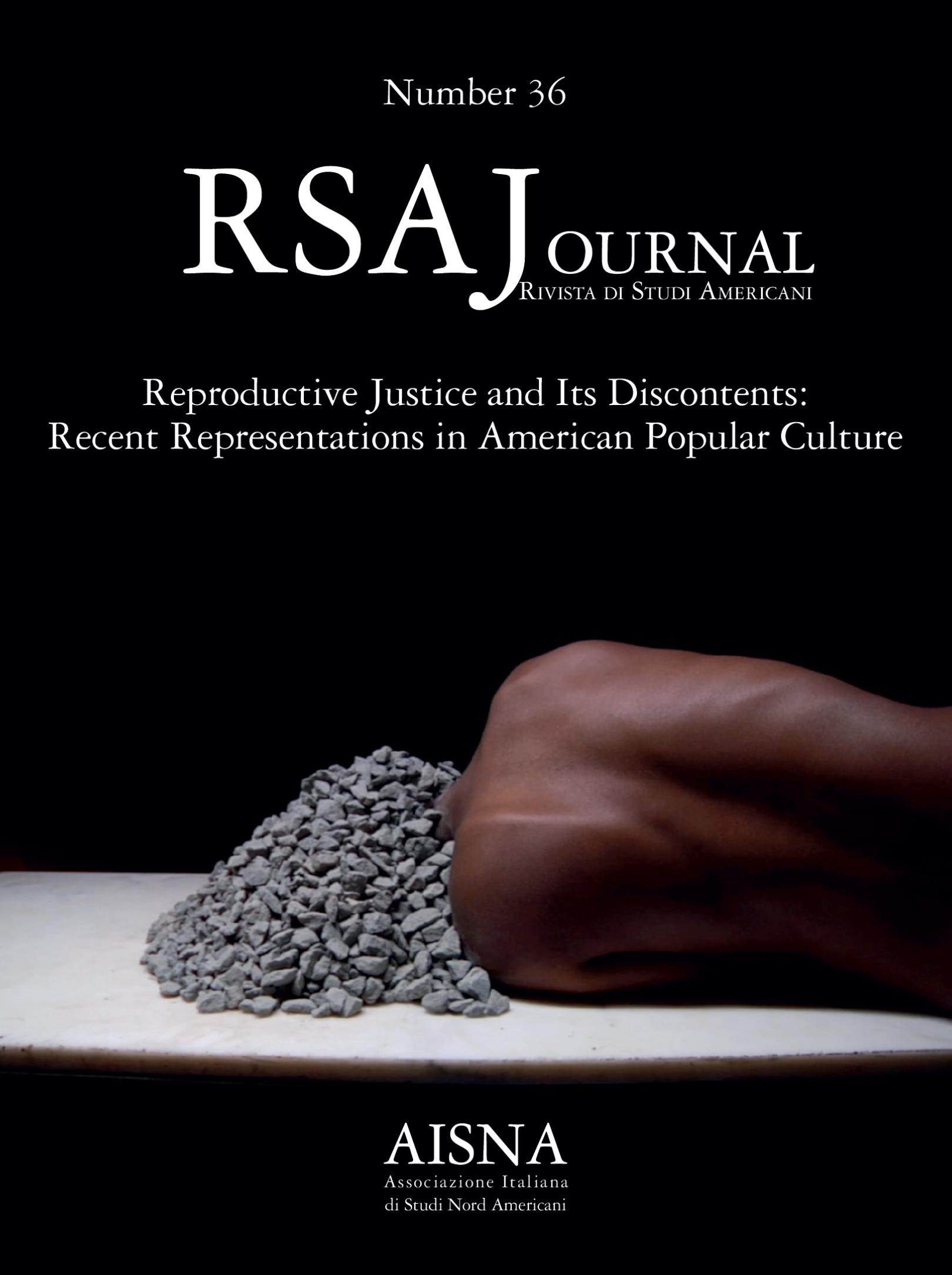“To the Men Who Love Us”
The Reframing of Reproductive Rights during Kamala Harris’s 2024 Presidential Campaign
DOI:
https://doi.org/10.13135/1592-4467/11729Parole chiave:
Reproductive Freedoms, Michelle Obama, 2024 Presidential Election, Benevolent Sexism, Protective PaternalismAbstract
Women’s reproductive rights were one of the central issues in the run-up to the 2024 US presidential election. Kamala Harris ran on the issue as she and her supporters on the campaign trail emphasized the importance of access to all reproductive healthcare services, which, depending on individual state laws, had been severely curtailed since the overturning of Roe v. Wade in 2022. However, to Harris’s detriment, the gender gap in the 2024 election was projected to be profound (Pellish), and Donald Trump did retain a firm hold over men’s votes, with 53% of men aged 18 to 44 and 57% of men votes aged 45 and up voting for him (“Interactive”). The Trump campaign was evasive about reproductive issues and, instead, aggressively promoted hypermasculine images by campaigning with Hulk Hogan and enlisting the support of conservative pundits, including Joe Rogan and Charlie Kirk (founder of the conservative activist organization Turning Point USA) (Kellman). Amanda Friesen and Kate Hunt’s observation that movements like #MeToo have further alienated men from women’s issues complicated the Harris campaign’s efforts to make inroads with male voters and actively engage them in the ongoing debates. This essay will show that the Harris campaign set out to win votes by reframing their rhetoric to position reproductive rights in the context of other fundamental American freedoms and convey that men have a stake in preserving access to reproductive healthcare. Michelle Obama’s powerful campaign rally speech on October 26, 2024, in Michigan (accessible on Kamala Harris’s YouTube channel) was the most conspicuous example of this strategy. Taking the stage in a camouflage-patterned blazer, Obama, not long into her speech, began a sentence with “[t]o the men who love us . . .” (Kamala Harris, “Michelle Obama”). The former first lady’s argument was in part an impassioned plea that forcefully explained to men how another Trump presidency and concomitant healthcare restrictions would hurt the women they loved and, ultimately, themselves. Thus, I will argue that Obama’s speech strikes a delicate balance between prompting men to “step up” for reproductive freedom on its merits and appealing to masculine gender scripts, reminiscent of “protective paternalism” (Leaper and Gutierrez), to suggest that voting Harris is a way to fulfill their “duty” to “protect” women, which is a political strategy that nevertheless somewhat weakens emancipatory discourses of bodily autonomy.
##submission.downloads##
Pubblicato
Fascicolo
Sezione
Licenza
Copyright (c) 2025 Sandra Tausel

Questo lavoro è fornito con la licenza Creative Commons Attribuzione - Non commerciale - Non opere derivate 4.0 Internazionale.
Avviso sul Copyright
RSAJournal applica una licenza CC BY-NC-ND a tutti i suoi contributi. Questa licenza consente agli utenti di copiare e distribuire il materiale in qualsiasi supporto o formato solo in forma non adattata, per scopi non commerciali e a condizione che venga esplicitato/a l'autore/autrice dell'opera. CC BY-NC-ND include i seguenti elementi:
- BY: L'autore deve essere riconosciuto come tale.
- NC: Sono consentiti solo utilizzi non commerciali dell'opera.
- ND: Non sono consentite opere derivate o adattamenti dell'opera.
Gli autori che pubblicano con questa rivista accettano i seguenti termini:
- Gli autori conservano il copyright e tutti i diritti di pubblicazione per i loro contributi alla rivista.
- Gli autori concedono alla rivista il diritto di prima pubblicazione in base alla licenza internazionale Creative Commons Attribution-NonCommercial-NoDerivatives 4.0, che consente ad altri di condividere l'opera non modificata per scopi non commerciali a condizione che venga esplicitato/a l'autore/autrice dell'opera e la sede di pubblicazione iniziale (questa rivista).
- Gli autori sono in grado di stipulare accordi contrattuali separati e aggiuntivi per la distribuzione non esclusiva della versione pubblicata dalla rivista (ad esempio, per inserirla in una repository istituzionale o pubblicarla in un libro), con l'indicazione che il contributo è stato precedentemente pubblicato in RSAJournal.




